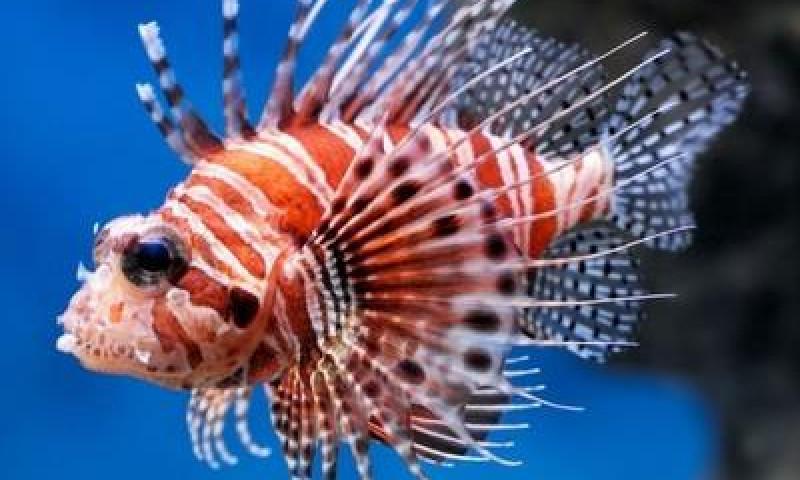Watch out! Poisonous lionfish from the Indian Ocean found in Cephalonia

Cephalonia
11 Sep 2019
/ 07:54
ARGOSTOLI. Following a chance catch by a fisherman in the area the Regional Cephalonia Fishery Department sent a sample from the fish to the Genetic Testing Lab, DNA Identification and Species Population Management at Thessaloniki University.
The Regional Fishery Department in Cephalonia has announced the appearance of the non-native species lionfish (Pterois miles) in Cephalonia.
Following a chance catch by a fisherman in the area the Regional Cephalonia Fishery Department sent a sample from the fish to the Genetic Testing Lab, DNA Identification and Species Population Management at Thessaloniki University Biology Faculty for genetic identification.
The examination showed that the sample belongs to the Pterois miles (lionfish) species. This was the northermost appearance of the fish to date and a report will be published in an international scientific magazine.
The lionfish Pterois miles is native to the Indian Ocean and can be found from the Red Sea to South Africa and Indonesia. It is a Lessepsian migrant and entered the Mediterranean via the Suez Canal. The lionfish is poisonous and is characterized by conspicuous warning colouration with red, white, creamy, or black bands. It has 13 poisonous spines on its dorsal fin, 1 poisonous spine on its pelvic fin and 3 poisonous spines on the anal fin which can cause swelling, strong pain and other complications. The poison is no longer active when the fish is dead.
What to do if the fish is caught when fishing:
If a lionfish is caught by chance, special care must be taken when handling it. IMPORTANT! It must never be touched with the naked hand and protective gloves must be used to remove it carefully from the fishing implement or equipment so that the poisonous spines don't come in contact with the human body.
If stung by the spines, go immediately to the nearest health centre or hospital for treatment to prevent any possible complications.
If a lionfish is caught, it must be reported to the Regional Fishery Department or the Port Authorities.
Following a chance catch by a fisherman in the area the Regional Cephalonia Fishery Department sent a sample from the fish to the Genetic Testing Lab, DNA Identification and Species Population Management at Thessaloniki University Biology Faculty for genetic identification.
The examination showed that the sample belongs to the Pterois miles (lionfish) species. This was the northermost appearance of the fish to date and a report will be published in an international scientific magazine.
The lionfish Pterois miles is native to the Indian Ocean and can be found from the Red Sea to South Africa and Indonesia. It is a Lessepsian migrant and entered the Mediterranean via the Suez Canal. The lionfish is poisonous and is characterized by conspicuous warning colouration with red, white, creamy, or black bands. It has 13 poisonous spines on its dorsal fin, 1 poisonous spine on its pelvic fin and 3 poisonous spines on the anal fin which can cause swelling, strong pain and other complications. The poison is no longer active when the fish is dead.
What to do if the fish is caught when fishing:
If a lionfish is caught by chance, special care must be taken when handling it. IMPORTANT! It must never be touched with the naked hand and protective gloves must be used to remove it carefully from the fishing implement or equipment so that the poisonous spines don't come in contact with the human body.
If stung by the spines, go immediately to the nearest health centre or hospital for treatment to prevent any possible complications.
If a lionfish is caught, it must be reported to the Regional Fishery Department or the Port Authorities.







